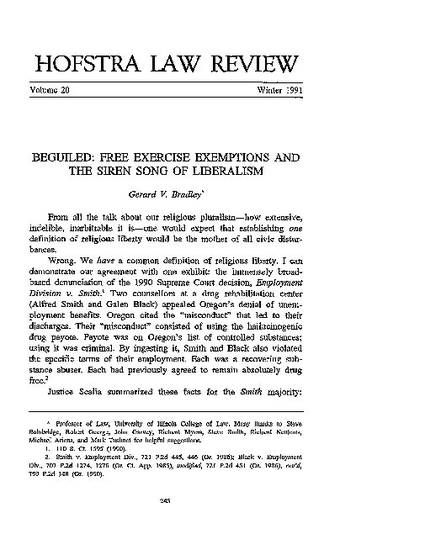
From all the talk about our religious pluralism—how extensive, indelible, inarbitrable it is—one would expect that establishing one definition of religious liberty would be the mother of all civic disturbances. Wrong. We have a common definition of religious liberty. I can demonstrate our agreement with one exhibit: the immensely broad based denunciation of the 1990 Supreme Court decision, Employment Division v. Smith. Two counsellors at a drug rehabilitation center (Alfred Smith and Galen Black) appealed Oregon’s denial of unemployment benefits. Oregon cited the “misconduct” that led to their discharges. Their “misconduct” consisted of using the hallucinogenic drug peyote. Peyote was on Oregon’s list of controlled substances; using it was criminal. By ingesting it, Smith and Black also violated the specific terms of their employment. Each was a recovering substance abuser. Each had previously agreed to remain absolutely drug free.
Available at: http://works.bepress.com/gerry_bradley/6/

Reprinted with permission of Hofstra Law Review.